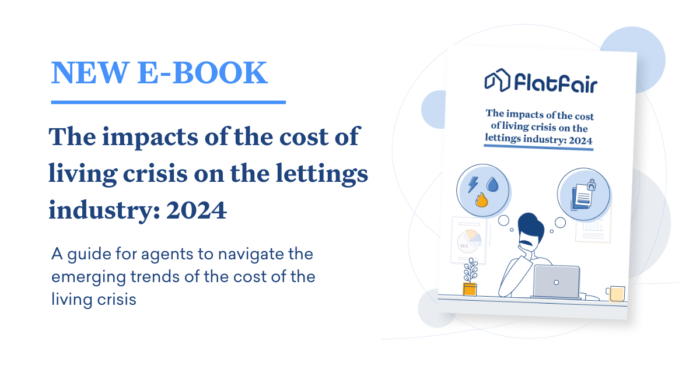Agents Apr 15, 2024 < 1 min read
E-BOOK: The impacts of the cost of living crisis on the lettings industry 2024
The escalating cost of living has rapidly and significantly impacted the UK lettings industry. Agents are working…

A deposit on a rental property has always been about one thing: recompense. For many years it’s been discussed how this compensation is best achieved; whether by deposits, insurance, a combination of the two, or via contractual obligations.
Cash deposits are, of course, an industry mainstay, provided to ensure recompense to a landlord for damage caused to their property outside of wear and tear. But in the run-up to the general election, the debate around deposits has centered on several key questions:
A lot of these discussions drive a wedge between the tenant and the landlord. In an ideal world, deposits wouldn’t be needed – a landlord would provide a property to a tenant, the tenant would pay rent, look after the property, and return it in pristine condition at a mutually agreeable time.
Unfortunately, this just isn’t realistic. Even the best tenants sometimes cause accidental damage, and it’s perfectly reasonable for a landlord to expect to be compensated for any damage that has been done to their property.
What’s becoming increasingly difficult for all concerned is the way in which this compensation is organised, attributed, distributed, and arbitrated.
Scrapping deposits, or slowly decreasing them, will drive landlords away from the private rental sector. This would not be good for tenants, because if demand outstrips supply, they’ll face hefty price hikes.
Moving to a ‘lifetime’ deposit solution will put an even greater strain on attributing damages fairly, and requires systems and arbitrary processes to adjudicate who should be recompensed and why. It can also be argued that this system doesn’t increase fairness, parity, or impartiality, for either party.
If no deposit is taken, landlord’s can’t factor property damage into an already complex business model, and will be required to cut corners elsewhere to remain profitable. For example, they might neglect to undertake day to day upkeep and maintenance. Without deposits, rogue landlords might begin to appear in greater numbers.
Having been a letting agent for 20 years, I know that a sensible and fair system needs to be found that provides protection to both landlords and their tenants.
Tenants must be obligated to pay a landlord for any damage they have caused to a property outside normal wear and tear, without tying up large sums of money.
At the same time, landlords need a simple and straightforward way to be recompensed for non-payment of rent without lengthy court procedures.
By embracing technology and establishing a centralised arbitration system that includes rental arrears (post tenancy and during the fixed term) both of these things can be achieved.
flatfair’s technology allows landlords to be recompensed for the damage caused to a property without the need for them to hold onto large sums of the tenants money, freeing up liquidity and making for a smoother end of tenancy process.
By linking with authorised tenancy deposit schemes, it also provides clarity to both tenants and landlords when deciding what level of recompense is fair, and also cuts down on what is normally a very ‘admin heavy’ process.
This is what the industry needs – cutting-edge technology that brings tangible benefits to the tenant life-cycle, and improved efficiency that provides real benefits to landlords and tenants alike.

The escalating cost of living has rapidly and significantly impacted the UK lettings industry. Agents are working…

Deposit alternatives are becoming increasingly popular – in part due to the cost of living crisis. Tenants…